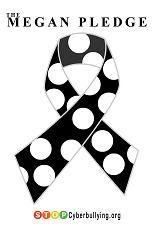I have come across a very sad thing here in my little corner of the world: children who not only don't believe in Santa Claus, but tell others that he is dead. The parents of these children often are trying to move their children away from the consumerism they see in Santa Claus and towards a focus on Jesus in the holiday. See, these parents not only don't believe in Santa Claus, they don't even understand the point. They are themselves so caught up in the consumerism that they miss the real meaning of Santa Claus, and thus miss a wonderful way of turning their children to their spirituality and community in a way that children can readily grasp and believe.
If you believe in Santa Claus, you understand that St. Nicholas is about giving, not receiving.
You may remember that we're staunch Methodists (well, we believe in comfortable furniture and stuff, but there is no denying we're Methodist in a strain older than what I have seen in any of the Methodist churches I've tried around here, which seem very. very Baptist). We believe that God has given us many, many gifts: life, the world around us, friends and families and everything in wonderful Creation. He also gave us Salvation- that was a gift, and it is given, and it is up to us to appreciate it, be grateful for it, and remember to do our best with it. That idea of giving, of putting your best forth and giving to the world, spreading love and cheer and goodwill, that is what Christmas is for, celebrating God giving us this great Gift.
That is also what Santa Claus is trying to remind us to do. By giving without expecting any return, Santa gives us a model of being a giving person, a person who thinks of others and what they want, and tries to show love in ways others understand. It is a lesson that is often lost in translation as we succumb to the me-me-me of the adolescent age, and so many never seem to emerge from it.
Telling a child that Santa is dead is not only unfortunate, it dismisses the lesson he has to give us all, the very message of the joy of Christmas and of the Christ. It is the core of Christian belief, which is why St. Nicholas, patron saint of children everywhere, is so adored.
I believe in Santa Claus.
Subscribe to:
Post Comments (Atom)




















10 comments:
We've run into that as well. However, here's an uplifting thought for you. My daughter, Princess, no longer believes, but she valiantly plays along, because she knows that all of her siblings are still believers. Sweet, huh? By the way, I hope you guys have a Merry Christmas.
My 11yr old asked me this year if he was real. I told him the truth and told him that should he tell his younger bro he'd get nothing for Christmas. Wasn't joking and he knows me well enough to actually fear that threat.
He's still not 100% convinced I was telling the truth. Which is just fine by us.
I thought Santa Claus was about blackmailing your children into good behavior.
Oh, I kid. All of my guys are still believers, although the oldest is starting to question. The conversation I plan to have with him once he is ready to know will include talk about the magic of letting other kids, including his brothers, still believe.
Personally, I think any conversation to transition a child from the childlike belief in Santa Claus to an adult one should include the idea of generosity and giving. The Sun editorial (Yes, Virginia, There is a Santa Claus) is a wonderful tool for helping make that transition. Just saying "Santa Claus is a lie" and "Santa doesn't exist" is not only overly harsh, it isn't fully true. That would be lying as much as saying a big guy in a red suit is going to pop down a chimney on Christmas Eve. It misses the whole point. It misses what mythology means and what it does. And it misses a wonderful opportunity to help children understand generosity and selflessness.
On this one, my dear, I have to respectfully disagree. The original Saint Nicholas paid for a man's dowries for his daughters. So a man could trade away his daughters in exchange for money. Not so his children could get toys, or food, or clothing. Santa has been used to sell, among other things, cigarettes, vodka, candy, vacations, and Playboy magazines (sexy Mrs. Claus, anyone?). Santa Claus makes many parents feel inadequate to the point they go deeply into debt every holiday trying to live up to our culture's impossible holiday standards. Santa isn't dead-- he never existed, and the 'generosity' idea of him was killed long ago.
I fully support generous giving-- instead of holiday gifts we budget our holiday money into giving to local food pantries, and we shop together for those foodstuffs. We keep a tzedakah jar all year round that we funnel into worthy causes. And for magic? We choose to create magic around less commercial characters, like the tooth fairy (thankfully, she's not been marketed to death). Is Santa fun? Sure. But to treat him as any more than a fun character like Elmo or Babar means to buy into the stress and pressure that makes parents physically fight each other in stores and means that every year around Labor Day we suck all the fun out of what could be a meaningful holiday of togetherness by seeing Santa schilling cheap crap in the stores.
I respect the beliefs of other parents regarding the holidays, and ask that my Jewish son does the same, but for some reason other parents and teachers do not do the same. To tell Jehovah's Witness, Muslim, Hindu, Buddhist, and Jewish children that something is wrong with them--or their families-- because a fat stranger does not break into their house and bring them plastic stuff made in a 3rd world country-- probably by child labor who won't be getting any of those toys-- is cruel and does indeed ignore the spirit of the holiday.
You'd be pretty upset if someone made openly derogatory judgments on your lifestyle (as you have been regarding public reception of autism behaviors, right?). So why are the rest of us fair game for those kinds of statements for not following a particular religious/commercial belief? I don't wear a hijab or a snood, but I don't feel it necessary to say those women are "missing the point" of feminism because they choose to practice differently.
I get the point of giving, of generosity. We choose to practice differently; in our house, Santa is not dead. He's a fun idea, just like Frodo and Sam and Captain Jack Sparrow. Real is donations to food pantries and our family spending time together. We don't need a fat man in a red suit to do either, and certainly not only one day a year.
It's OK to believe, and I fully support your belief. But it's OK not to, too. And it doesn't mean we've killed a beloved holiday icon, or that we're missing the point. In our case, anyway, it means we got the point but reject the particular medium in favor of a different practice that feels more true to what we want our family to be.
Remember your post about the different conversations at the meeting of parents of children with autism, and how you just support, not judge, each family's approach? Why is this different?
We don't really do Santa here. Not for any religious/consumerism reasons, but because G is so literal and logical he flat out refuses to believe in anything we can't prove to him.
But we still teach lessons about giving to others, without mythology. My favorite way is to have him sort through his toys before christmas and decide which toys and books he will give away. We take them to our town's freebox in the hopes that someone else will use them for their kids christmas gifts.
This year, he decided he hadn't played with his legos for a long time and wanted someone else to have them. This was pretty huge and very generous for G. So we filled gallon ziplock bags and made about 10 big sets. I think there will be some happy boys this christmas!
Amanda, when you said you were going to disagree, I was expecting you to... disagree. But we don't.
If you don't want to believe in Santa Claus, or have your child believe in Santa Claus, there are lots of other ways to teach the lessons of generosity and giving. Not everyone is Christian, but almost all religions include values of generosity and community support.
What I take issue with is saying-and encouraging your children to tell other children- that Santa is dead. Santa is not dead in your house. He's a fun character. And really, if you want to believe that Santa is dead, that's your business. But telling my kid that Santa is dead? Not just that he doesn't exist, but dead? I have a very serious problem with that, just as I would have a problem with telling a woman wearing a hijab that she is not a feminist and should take it off.
I think it is just as wrong to shun a child for not believing that a fat guy is going to pop down their chimney and leave them presents. But I am definitely not going to encourage that child to go around teasing other children because they are still at the stage where generosity is still manifest in every local shopping mall.
I think those kids, who are telling other children Santa is dead, are trying to take away the joy from other kids who are allowed to have it. The parents may have been too lazy or hasty in telling their kid Santa doesn't exsist, I think those parents should be held accountable for their selfishness in wanting to end holiday consumerism by upsetting their child.
I remember when I was a kid, my family as well as other Jewish families came up with the idea of Hannukah Harry as a version of Santa Claus, so the kids didn't feel they were missing out by not having a Santa Claus type figure.
Oh no! Another child actually said that Santa was DEAD?! I misunderstood your post to be figurative. It was literal? Ugh, that's terrible. Well, that's my misunderstanding, then. And shame on those parents and those kids. 'Dead' is a lot different than a natural understanding of the truth of Santa. That's cruel. They didn't say that to your guys, did they? :(
Fortunately, this was not said directly to my own. The whole "dead" thing would mean disaster for weeks. But I have heard it more than once, and in places where my kids could certainly have heard it if I had brought them along with me. These people are proud to have their children saying "Santa is dead! Christmas is about Jesus!" Honestly, I'm all about the second part. The first part? Not so much. Misses the whole point of Santa and the purpose of myth- a conversation I love to have in coffee shops and classrooms, but not particularly here- entirely.
Post a Comment